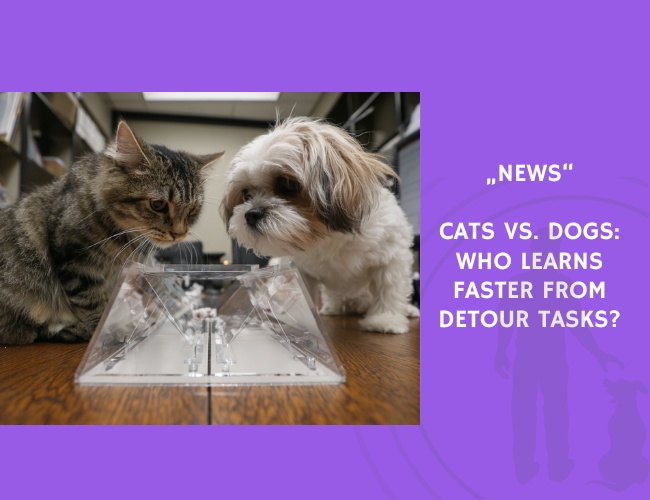In a side-by-side detour task, dogs show stronger trial-and-error learning and social referencing than cats—raising questions about species-specific cognition.
For the first time, researchers directly compared cats and dogs in the same problem-solving task: a V-shaped transparent mesh fence detour. The results are clear—dogs outperformed cats, both in speed and learning over time.
The dogs not only reached the reward faster but also learned from previous trials. After a successful detour, they reused the same route. Cats, however, often switched sides regardless of outcome, suggesting weaker reliance on prior experience.
Additionally, dogs looked back at their owners more often—potentially signaling social referencing or stress. Cats remained more independent and less likely to seek human cues, consistent with their evolutionary and behavioral background.
While laser-pointer demonstrations failed to influence either species’ performance, the data suggests that human-dog attachment plays a vital role in how dogs engage with problem-solving. Cats were harder to motivate and engage overall, aligning with known challenges in feline cognition research.
This study underscores that species-specific cognition is not just a matter of ability—but also of relationship dynamics and learning style.
https://doi.org/10.3390/ani13010045










